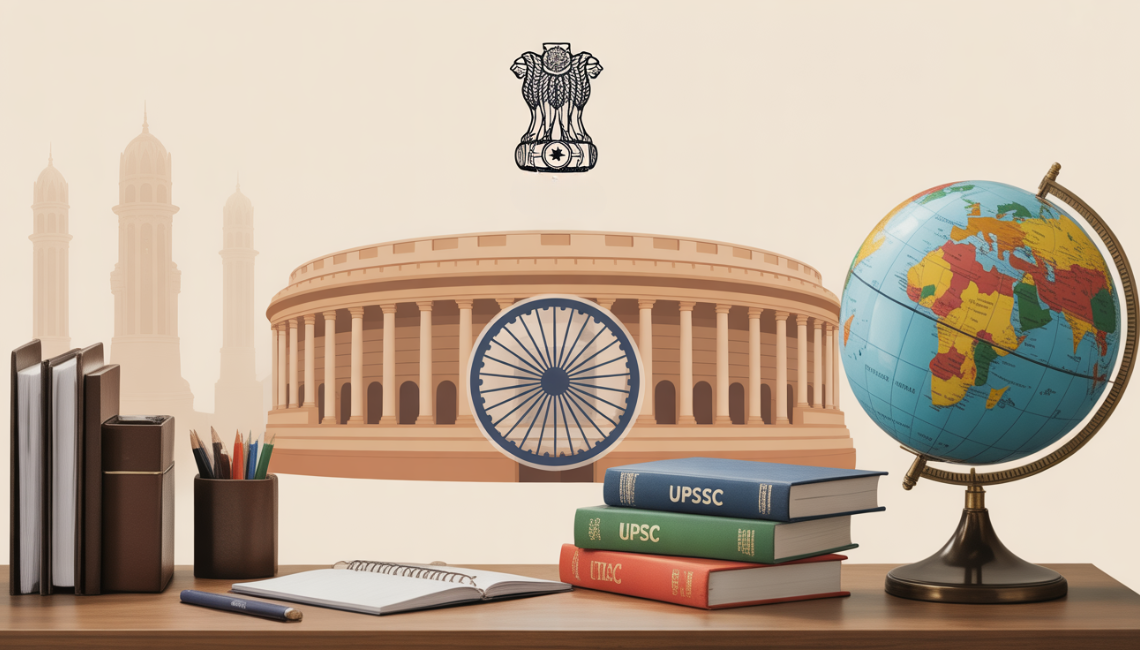The Union Public Service Commission conducts the civil services examination for central posts like the Indian Administrative Services, Indian Police Services and Indian Foreign Services, along with other central services. Every year, many aspirants apply for this examination, but only a few of them qualify. Therefore, it is important to understand the syllabus pattern and preparation strategy to start the practice.
We will cover details regarding UPSC exam syllabus patterns, preparation strategies and strategies in this article in order to assist candidates in efficiently preparing.
UPSC Exam Pattern
Three stages of UPSC exam:
-
Preliminary Examination (Prelims)
-
Type: Objective (MCQs)
-
Papers: Two papers – General Studies (GS-I) and Civil Services Aptitude Test (CSAT or GS-II)
-
Marks: Each paper carries 200 marks.
-
Duration: 2 hours each
-
Qualifying Nature: GS Paper I is used for merit ranking, while CSAT is qualifying with 33% required.
-
Main Examination (Mains)
-
Type: Descriptive (written)
-
Papers: Nine in total (two qualifying, seven for ranking)
-
Qualifying Papers: English and one Indian language (300 marks each)
-
Merit Papers: Essay, four General Studies papers, and two optional subject papers
-
Marks: Total of 1750 for merit-based papers
-
Duration: 3 hours per paper
-
Personality Test (Interview)
-
Marks: 275
-
Focus: Evaluates analytical ability, personality traits, and suitability for a career in civil services.
Final Merit List = Mains (1750) + Interview (275) = 2025 marks
UPSC Syllabus Overview
The syllabus is vast, but having a structured understanding makes it manageable.
Prelims Syllabus
-
GS Paper I:
-
Current events of national and international importance
-
Indian history and national movement
-
Indian and world geography
-
Polity and governance
-
Economic and social development
-
Environmental ecology, biodiversity, climate change
-
General science
-
CSAT (GS Paper II):
-
Comprehension
-
Interpersonal skills and communication
-
Logical reasoning and analytical ability
-
Decision-making and problem-solving
-
Basic numeracy and data interpretation
Mains Syllabus
-
Essay: Writing essays on multiple topics
-
General Studies (GS I–IV):
-
GS I: Indian heritage, history, society, geography
-
GS II: Polity, governance, international relations
-
GS III: Economy, agriculture, technology, environment, security
-
GS IV: Ethics, integrity, aptitude
-
Optional Subject: Two papers chosen from a list of subjects (e.g., Public Administration, Sociology, History, etc.)
Preparation Strategy for UPSC
1. Understand the Exam Thoroughly
2. Build Strong Foundations through NCERTs
3. Stay up to date with current affairs from The Hindu or The Indian Express
4. Practice Answer Writing daily
5. Take Mock Tests
6. Revise Consistently
7. Choose Optional Wisely
8. Focus on Personality Development
9. Focus on every subject equally
10. Give time to CSAT as it is often left out
11. Stay away from unnecessary distractions
12. Keep your sources limited to one book per subject
Conclusion
UPSC test preparation requires determination and a clear direction, two essential components. Self-study is definitely in the equation; however, structured mentorship could help make the whole process more efficient. An institute that provides advice, test schedules, or writing exercises may be essential in your efforts to pass the exam with ease.
Dhyeya IAS stands out as an expert when it comes to professional advice and structured strategies for preparation and has helped thousands of applicants achieve success in the UPSC journey.







